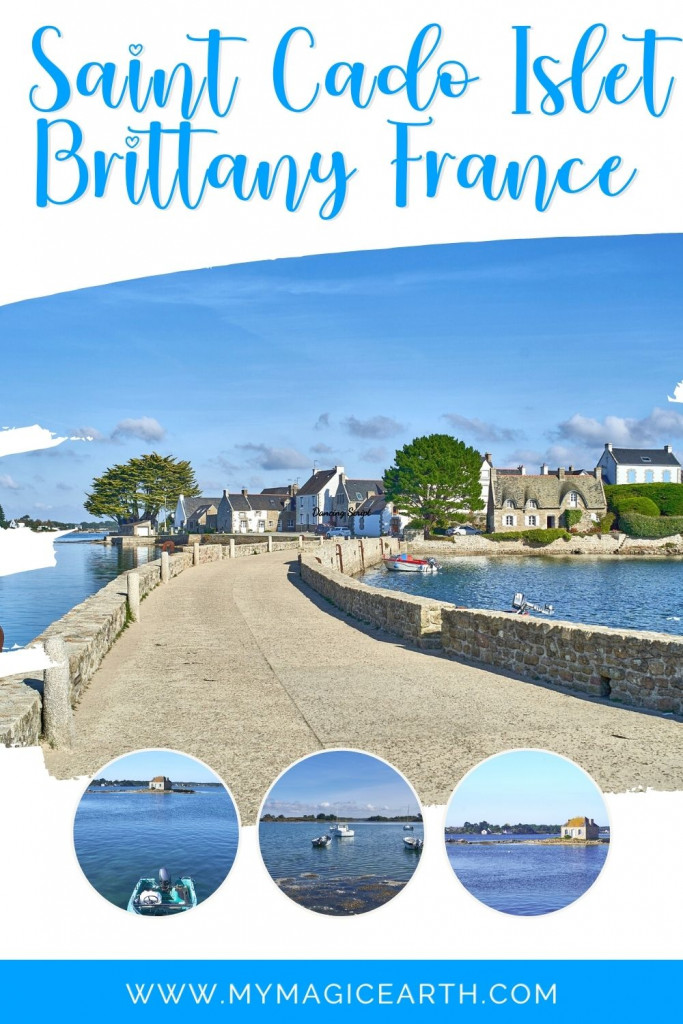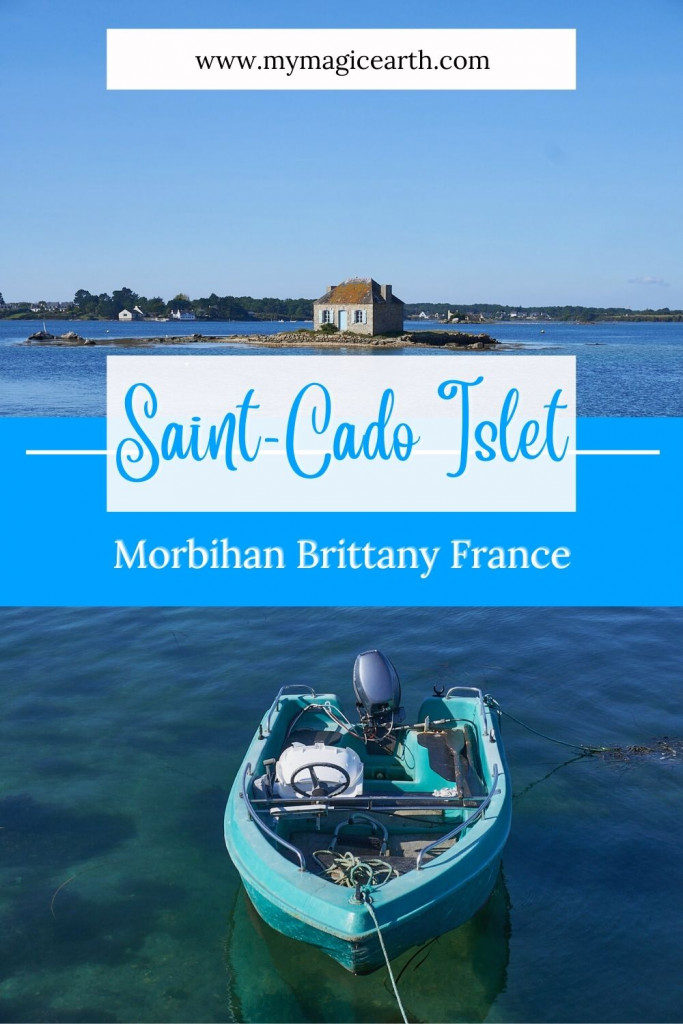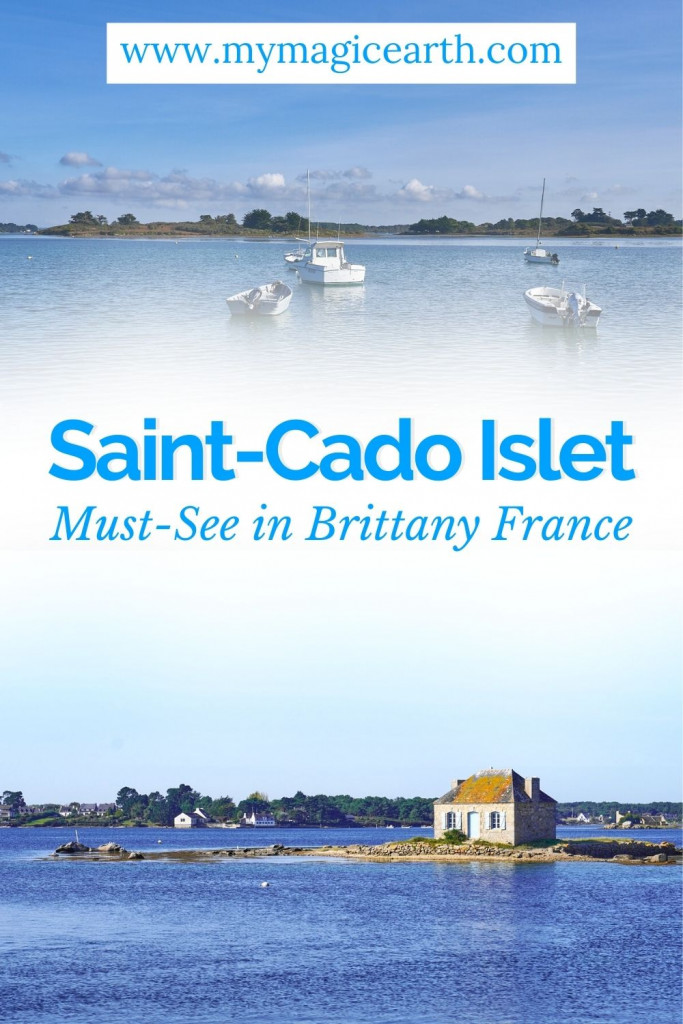Saint-Cado islet in Morbihan is just a short distance from Lorient. Situated in the heart of the Etel River and linked to the mainland by a legendary stone bridge, this village is a concealed gem of Brittany. A leisurely stroll around the Saint-Cado islet takes only about 15 minutes, revealing a landscape with a magical setting that attracted us during our autumn trip to Brittany.
The stone bridge
According to the legend, Saint Cado desired a bridge to link the inlet separated from the land by the Etel River, but lacked the means. A negotiation ensued between Saint Cado and the devil, resulting in a deal: the devil would build a bridge in exchange for the soul of the first one to cross it. Surprisingly, the inaugural passer-by turned out to be a cat!
As you approach from the quay, the stone bridge stands impressively against the backdrop of the inlet. Walking across, the expansive view reveals most of the houses in the Saint-Cado inlet. The wetland areas on both sides of the bridge are a haven for numerous bird species.
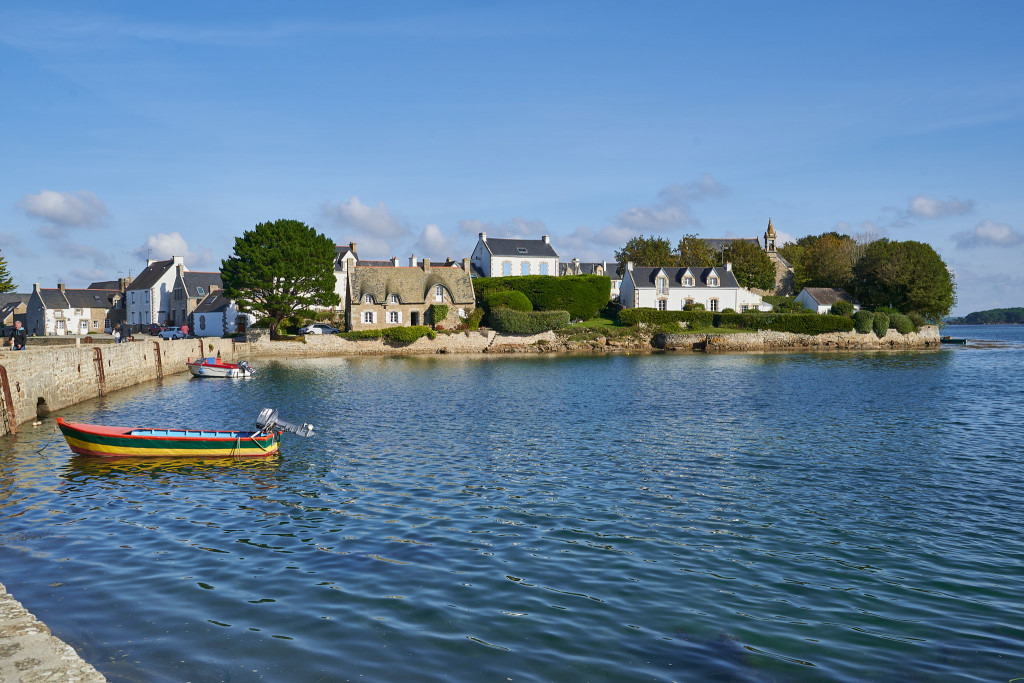
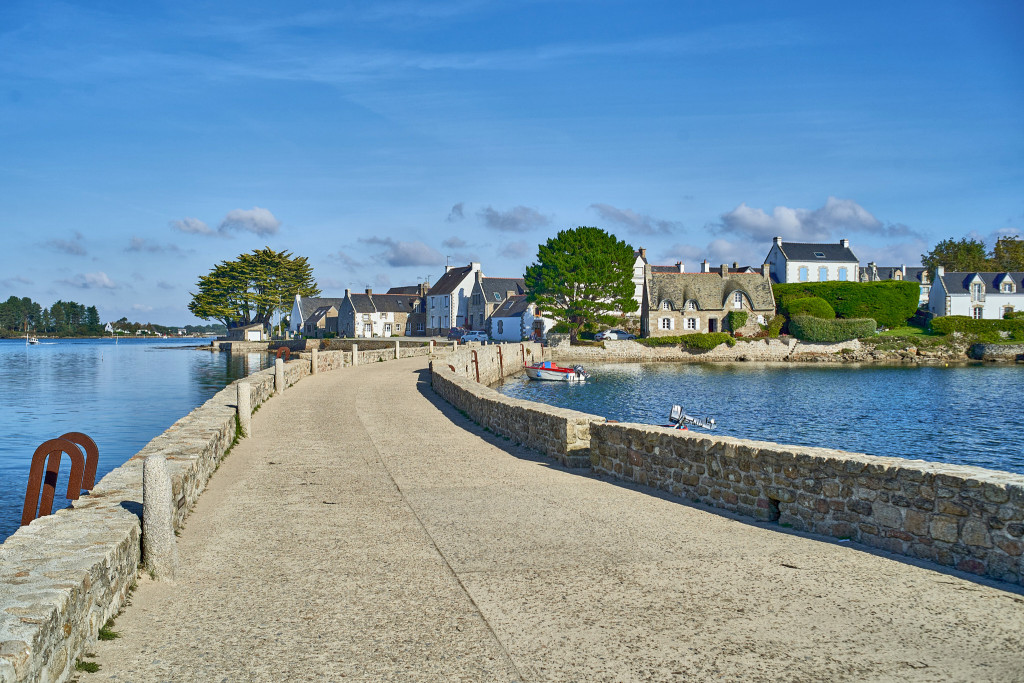
Little cottage with blue shutters (Nichtarguer)
As we approached Saint-Cado, our attention were drawn to a charming house with blue shutters. This former oyster farmer’s cottage on the rocky islet is not only picture-perfect but also a common sight on many postcards. The Étel river once hosted numerous oyster farmers since the 1890s. However, in the present day, less than 100 farmers continue the tradition, collectively producing around 3000 tonnes of oysters per year.
Heritage of Saint-Cado islet
Our romantic stroll on the islet began at its heart, allowing us to appreciate authentic fisherman’s stone houses and religious monuments.
Romanesque chapel
The petite island is home to a Romanesque chapel dating back to the twelfth century. The chapel features a sixteenth-century western portal, the chapel features a nave, aisles, and a Romanesque-era choir. Numerous houses surround this quaint Romanesque chapel on the islet.
Calvary of Saint Cado
A Calvary decorated with sculptures graces a lofty porch, accessible via stairs flanked by low walls. The platform is enclosed by four square pillars, each adorned with projecting cornices crowned with balls. Besides, the cross’s base takes the shape of a curved altar.
Fountain
The fountain below the chapel is accessible by the stone path and shielded from the sea by a sturdy wall. The square-shaped basin rests beneath a semicircular arch nestled in the core of a paired massif. Atop the arch, the structure is adorned with a more recent sculpted cross, depicting a crucifixion.
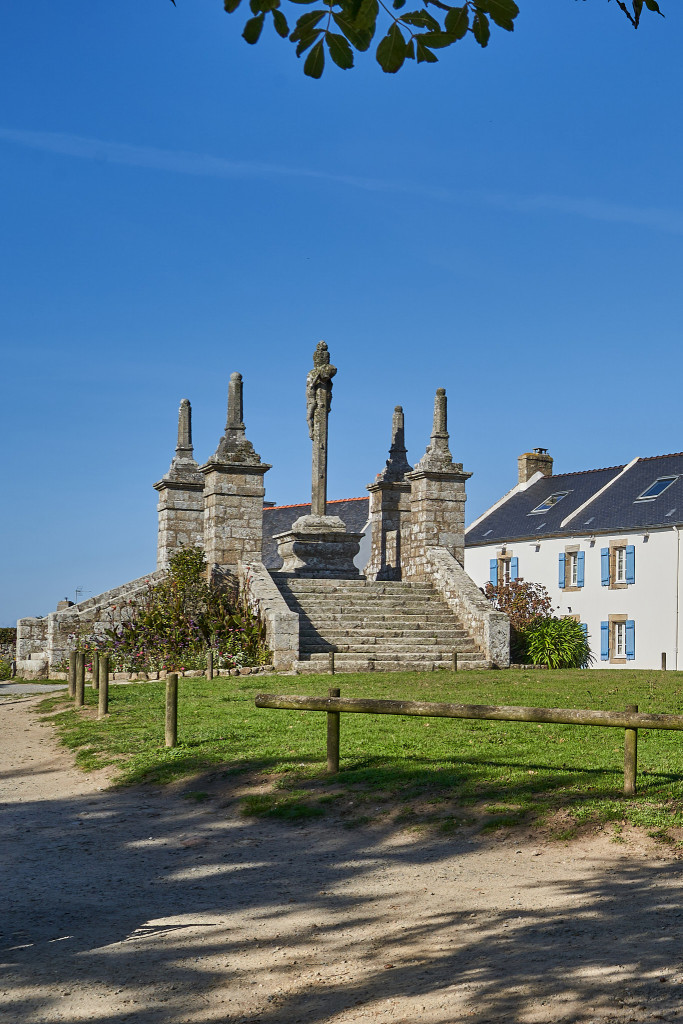
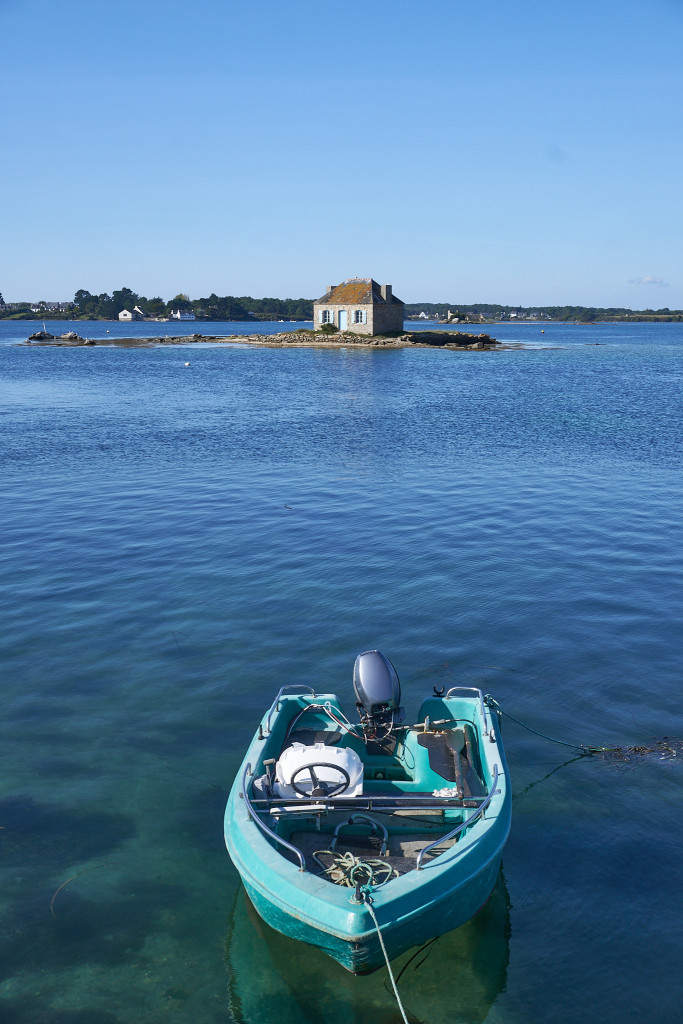
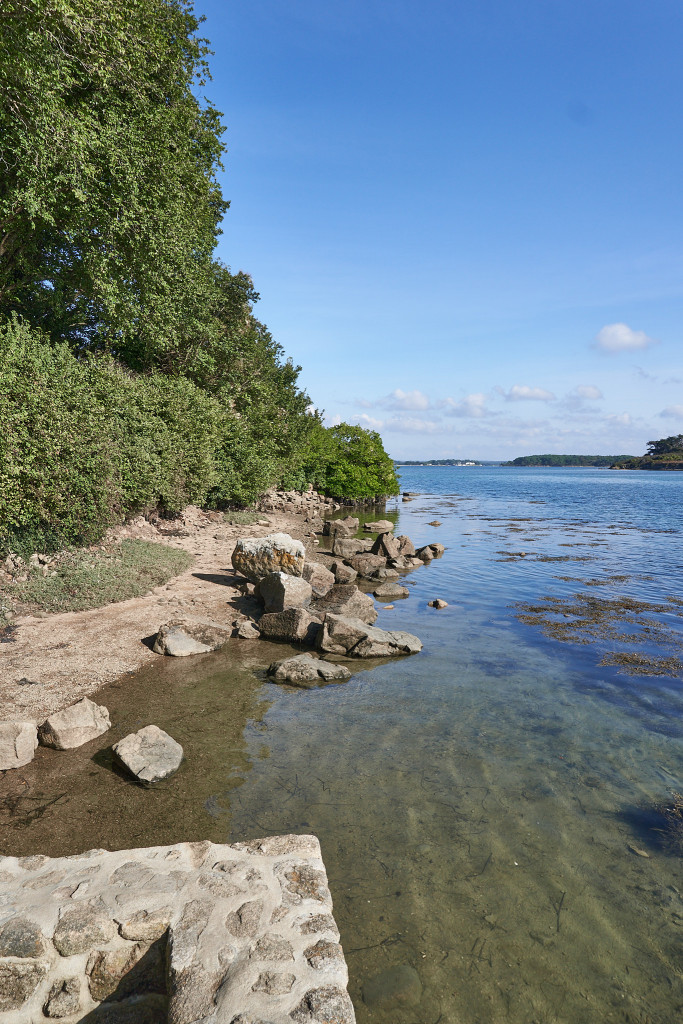
Walking path around the islet
We followed the path beneath the chapel, tracing our way around the island. The pathway unfolded into a picturesque vantage point overlooking the Etel River, weaving through oyster farms, forests, and charming coves where colourful boats gracefully sailed. Taking the time to soak in the untouched natural landscapes and genuine authenticity was truly rewarding. Despite reaching a modest height of two meters at high tide, I could envision a breathtaking sunset panorama, with the final golden rays trimming the sea.
To top off the experience, Les Algues Marines at the quay serves delightful local cuisine and stands as an ideal spot to relish the mesmerizing sunset views.
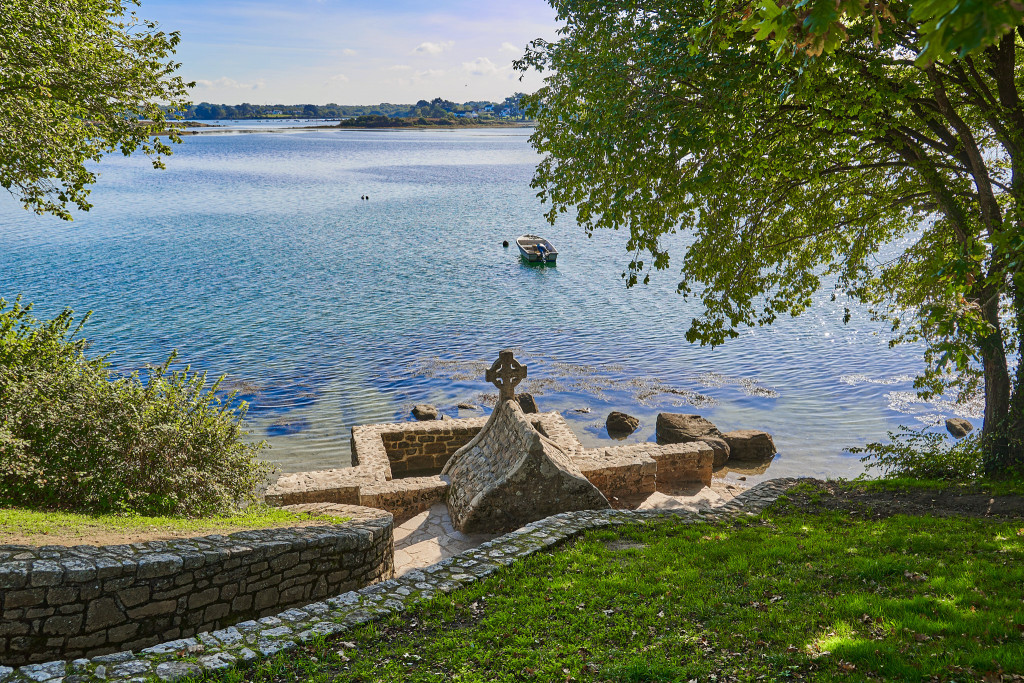
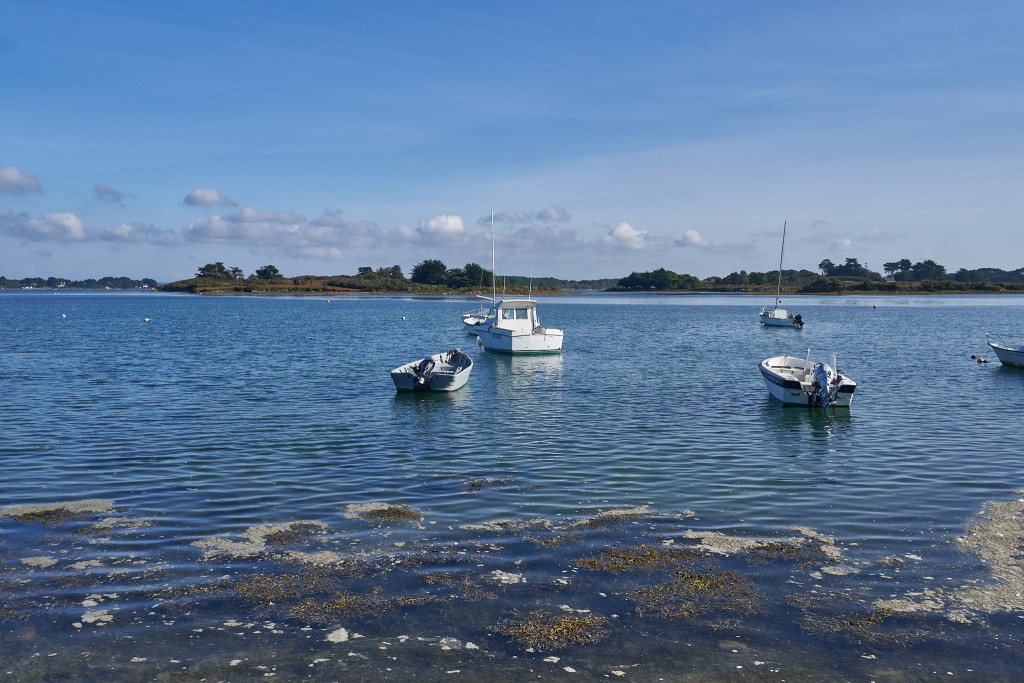
Travel tips for Saint-Cado Islet
Where to stay
Saint-Cado is an ideal hub for venturing into Lorient, Vannes, and Quiberon. While there’s only one accommodation on the petite islet, on the mainland side, you’ll find a handful of hotels and a camping site. The three hotels listed below are all conveniently situated near the stone bridge:
How to get there
The most convenient way to reach Saint-Cado is by car. Follow the N165(E60) and then take the D16 to Belz. Once in Belz, navigate the local roads leading to the Saint-Cado islet. A convenient parking spot awaits just next to the waterfront, from where visitors can enjoy a pleasant stroll to the stone bridge.
